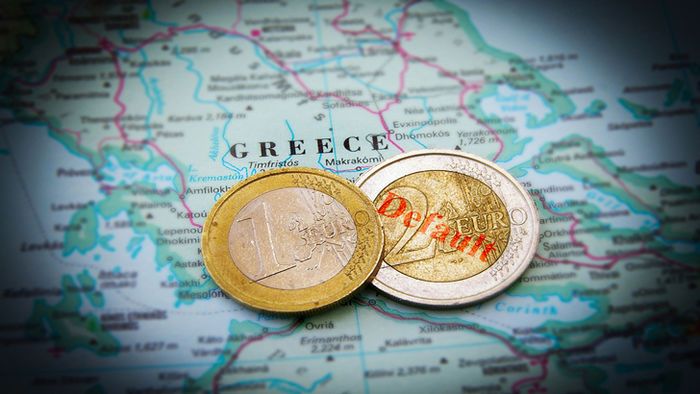Six things you need to know about the Greek debt crisis
By Will Shepherd
June 30 is looming and all eyes are on Greece. Here are six things you need to know about the Greek debt crisis.
1. What is the June 30 deadline?
On Tuesday, June 30, Greece's bailout extension terminates and a payment of 1.5 billion euro ($2.2 billion) is due to the International Monetary Fund (IMF) - this is all of June's payments combined as one.
2. What happens if this payment isn't made?
After a fortnight has passed Greece will be asked for a second time to make payment. After a month has passed without payment, Christine Lagarde, the managing director of the IMF, will advise her board that Greece has failed to deliver on its obligations. This can then lead to cross default.
3. What is cross default?
Greece has outstanding debts with numerous creditors - the European Central Bank (ECB), bondholders, the European bailout fund, as well as various world governments and banks. Cross default means that should the Greeks default with the IMF, these creditors can also declare a default and withhold any future funds. Once Greece has defaulted on one debt, it has essentially defaulted on all its loans. These creditors can then demand immediate repayment of all outstanding loans, as all lenders want to ensure they are part of any negotiations on refinancing - this is known as cross acceleration.
4. What effect will this have on Greek banks?
Greeks have now withdrawn over 20% of deposits held in Greek banks in 2015. The banks are only surviving by having the ECB providing its emergency liquidity assistance (ELA) funding on a daily basis in the order of hundreds of millions of euros. Given the rate at which the banks' deposit base is reducing, they need a resolution to this crisis urgently.
The president of the ECB, Mario Draghi, has stated that the ELA will continue to support the banks that are solvent. However, this solvency is open to debate. Should the Greek government default on the debt that is held by these banks, it will be very hard for the banks to still be deemed solvent.
Once the ELA is withdrawn, a bank run will be almost impossible to avoid - this is where depositors flock to banks to withdraw as much as possible, with the banks soon running out of funds. Capital controls are one way the government can try to avoid this.
5. How will capital controls keep funds in the country?
Capital controls aim to keep Greece's funds within the country by various methods such as restrictions on withdrawals and prohibitive taxes on transactions. This was effective during the Cypriot banking crisis as it bought the banks more time to refinance. However, Cyprus is an island nation where it is easy to impose restrictions on people departing with large amounts of funds. With Greece's open borders it would be safe to assume that a large amount of the withdrawn deposits would find their way to the banks of neighbouring countries with relative ease.
As many parliaments leave for summer breaks in July, the pressure is on the Greeks to try to resolve this current crisis before the June 30 deadline. Given recent history, it is of course possible that an interim agreement/extension will be put in place so Greece and its creditors can once again kick the can down the road.
6. What it means for Australia if Greece defaults?
A Greek default will be a large shock to global financial markets and we can expect the volatility in the FX market to increase rapidly. Investors will be looking to sell the EUR and move back to the world's base currency - the USD.
As the AUD is closely tied to risk trends, commodities and also global equities, it is likely to be a victim of the USD strength and risk aversion in the market.
Rather than buying AUD to be able to buy our high yielding bonds, investors will first and foremost be looking for security.
The market will be chasing safe haven assets and currencies, and this will likely be to the detriment of the currencies on both sides of the Tasman.
Get stories like this in our newsletters.


